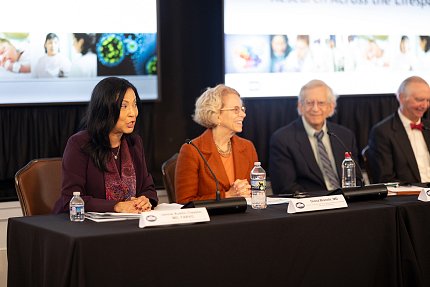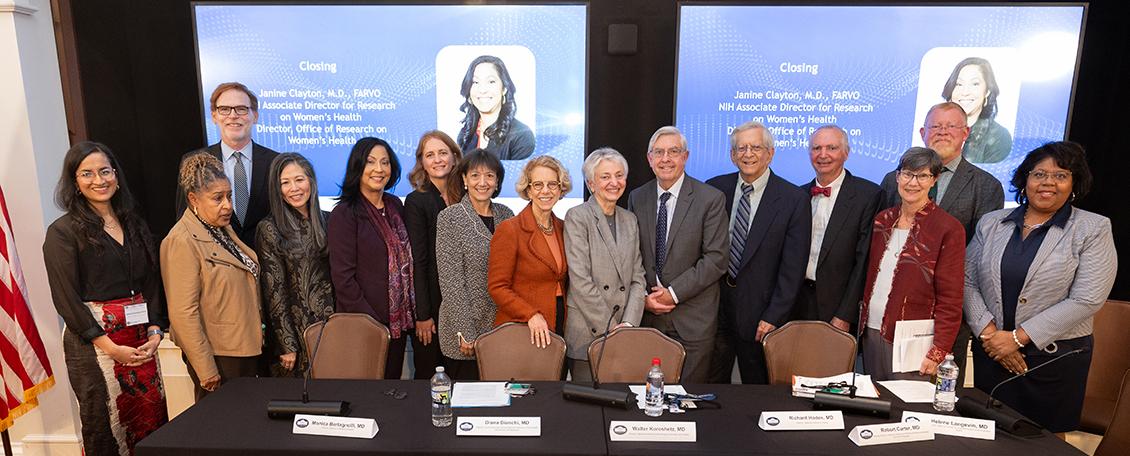Advancing a Whole-Person Approach to Women’s Health Research

Photo: JASON WEIL PHOTOGRAPHY
On Oct. 29, NIH Director Dr. Monica Bertagnolli participated in a workshop at the White House as part of the White House Initiative on Women’s Health Research. Experts from across NIH gathered to highlight interdisciplinary research advances in women’s health and to discuss future priorities.
“So many women—myself included—have benefitted from significant medical breakthroughs over the past 60 years,” Bertagnolli said. “As a breast cancer survivor, I’ve been fortunate to have access to excellent care. And the evidence that guided that care came directly from NIH-funded research.”
Over the years, NIH research advances have improved women’s health—from the HPV vaccine to prevent cervical cancer, to the use of statins to reduce heart disease and stroke, to effective approaches to maintaining bone health after menopause. But there are many more health areas to tackle.
“Our vision at NIH takes a whole-person approach throughout a woman’s lifetime, recognizing that many interconnected factors contribute to health and disease,” Bertagnolli said. “From the genes we inherit to the environments we live in and other social determinants…women have their own unique experiences and needs.
“NIH research addresses conditions unique to women, such as endometriosis and uterine fibroids, as well as those that affect women disproportionately or differently. For example, women are more likely than men to have certain health conditions such as Alzheimer’s disease, anxiety and depression disorders, and certain cancers.”
NIH has renewed its commitment to investing in programs that address women’s health across the lifespan, particularly at the health inflection points of menarche, pregnancy and menopause. Bertagnolli noted that caring for women during and after pregnancy requires interdisciplinary research on mental health, cardiovascular disease, nutrition, infectious disease and substance use.

Photo: JASON WEIL PHOTOGRAPHY
NIH has committed $200 million in fiscal year 2025 to supporting cross-cutting research focused on the health needs of women. In addition, a Notice of Special Interest was issued across nearly all NIH Institutes and Centers, calling for project applications on diseases and conditions that impact women differently, disproportionately and uniquely.
“We are already considering close to 300 new applications for women’s health research projects,” she said.
The whole-person approach to women’s health must be integrated into all stages of the research process—from identifying innovative research questions, to producing impactful scientific and clinical results, to developing ways to equitably adopt new treatments. It begins with convening researchers and clinicians from different disciplines to accelerate progress through combined efforts and knowledge.
The White House Initiative on Women’s Health Research calls for this comprehensive approach. Bertagnolli concluded, “It demands that we approach this work with urgency, putting women and their lived experiences at its center to focus on translating insights from biology and society into better health.”
